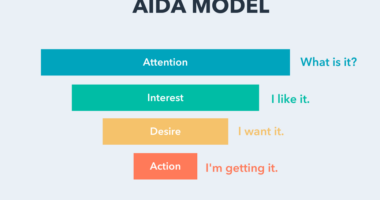If you’re wondering how to rank your website on Google, then there is no better place than Supergoodcontent.com. This is the ultimate cheat sheet that will help you rank your website properly. It contains everything that you need to know about Google’s algorithm and how it works.
Every Google algorithm has a different goal. For example, Google News is meant to surface the most important stories, which are ranked in a specific order. The Google News algorithm doesn’t care if you are a huge brand and have a ton of money or if you are a small startup and have no money. It doesn’t care if you are a small company and have a lot of traffic. And it doesn’t care if you are an organization and have a lot of followers. The goals of Google News algorithm are the same for everyone.
There’s no mystery to Google’s algorithm. It’s a simple formula that tells Google’s search engines what content is valuable and what content needs to be disallowed from certain search results. Google’s algorithm is one of the most important factors in a search engine’s success. Without an algorithm, a search engine will not be able to successfully serve up relevant results to a search query. Google’s algorithm is used to rank pages in web search results and also to provide featured snippets and other forms of rich snippet markup, which is one of the primary ways that Google distinguishes between web pages.. Read more about google algorithm pdf and let us know what you think.
When you’re a marketer striving to maintain the top possible page position at all times, the Google algorithm is continuously evolving, which might cause some issues.
There is, however, some good news: it is feasible to “hack” the Google algorithm and maintain a high rating. Allow me to demonstrate.
What Do We Know About the Ranking Factors in the Google Algorithm?
We only know so much about Google’s algorithm since the company refuses to share its top ranking elements. To put it another way, no one knows exactly what boxes to check to get a first-page ranking. That being said, here’s an overview of the ranking elements that we are aware of:
- Page speed: If your website is sluggish to load, Google updates with page speed may effect you. Slow websites provide a poor user experience.
- Relevance of content: While you shouldn’t cram your website with keywords, you should use a few that are relevant and generate content around them.
- Your website’s design should be user-friendly and simple to browse.
- Quality of links: If you want to rank on Google, make sure you only link to useful, helpful content. It’s possible that irrelevant links will be harmed.
- Mobile-friendliness: Because Google ranks and indexes websites based on their mobile versions, “mobile-friendliness” is a ranking criteria.
- HTTPS status: Google favours secure websites since they are more reliable. Because HTTPS is more secure than HTTP, obtaining an SSL certificate can improve your search engine rating.
- Finally, because the pages may be of low quality, Google may penalize websites with high bounce rates and little repeat visits.
Simply said, the Google algorithm rewards sites that provide the best user experience.
How Frequently Does Google Announce Algorithm Changes?
On a regular basis, Google makes modest modifications to its algorithm. It’s possible that they’ll release many updates in a 24-hour period.
These improvements are usually minor, and you won’t notice a decline in search page rankings as a result of them.
The same cannot be said about the “core” changes, however. Google makes these larger, sweeping changes a few times a year, and they might have a direct impact on the performance of your page.
At least once or twice a year, there will be a core upgrade.
Updates to Google’s Algorithms
Here’s a review of some significant past Google algorithm improvements and their impact on page-ranking methods to help you better grasp how they work.
Panda is a Google search engine
This algorithm upgrade, which was released in 2011, targeted poor behaviors like keyword stuffing and duplicate content. It introduced a “quality score” that allowed web pages to be ranked based on how people would perceive the content rather than how many keywords they included.
Marketers ensured they generated informative, quality content, revised underperforming articles, and strategically employed keywords to “survive” Google Panda.
Google Penguin is a search engine that is used to
This upgrade, which went live in 2012, targeted “black hat” SEO techniques like link directories and bogus backlinks. It looked at keyword stuffing in the same way that the Panda upgrade does.
The idea was to shift away from relying on link volume to increase a page’s search ranking and instead focus on high-quality content that featured only useful, engaging links.
Hummingbird can be found on Google
This 2013 update was focused about bridging the gap between what individuals searched for and what they truly wanted to find. In other words, it attempted to make the search engine experience more human by promoting the most useful and relevant content to the top of the results page.
As a result, marketers improved their chances of satisfying readers’ expectations by providing more keyword variations and relevant search words.
RankBrain is a feature of Google’s search engine
RankBrain, a Hummingbird plugin, was launched by Google in 2015. It assigns a score to pages depending on how well they appear to respond to a user’s search intent. It promotes the most relevant and useful material for a term or search phrase, in other words.
By understanding the user intent behind every keyword people search for and generating rich, quality content to satisfy their expectations, you can pass RankBrain.
When Google Releases a New Algorithm Update, How Do I Know?
There’s no reason to keep track of every change Google makes to its algorithm. It’s critical, though, to keep track of key updates so you can adjust your SEO strategy properly.
To begin, create a Google Alert for algorithm updates. When algorithm adjustments are referenced online, Google Alerts will send you an email notification so you can start preparing for the changes as soon as feasible.
Next, follow Google SearchLiaison on Twitter if you’re a Twitter user. It’s an official account where you’ll get updates to the main algorithm. Because Google Alerts do not work on social media, you can use this account to keep track of any talks of algorithm changes:
You can read the official announcements on this page to learn more about how these algorithm updates will affect you. You may also discover more about Google’s upcoming changes, which may help you enhance your overall SEO approach.
Finally, Google Analytics can assist you in detecting algorithm changes. What can Google Analytics do for you? For one reason, it can assist you in identifying odd changes in traffic and conversions. You can then examine your results more closely to discover if you’ve been “affected” by a Google algorithm adjustment.
Finally, use an algorithm analytics tool such as MozCast or Accuranker’s Grump. These tools monitor Google algorithm changes on a regular basis to assist marketers in staying on top of any alterations.
You can follow algorithm changes by device with Grump, for example, so if you’ve noticed a decline in mobile traffic or conversions, you can use this tool to see if Google is “grumpier” than usual, implying an algorithm change:
How to Figure Out Which Google Algorithm Changes Affect Your Site
Have you recently observed a significant drop in traffic? It’s possible that a change in the algorithm is to blame. Here are the two most effective methods for determining which change recently affected your website and how to recover from the penalties:
- To begin, go to Google Search Central (formerly Webmasters). This platform includes a variety of materials to assist you in diagnosing typical performance issues and identifying potential algorithm penalties.
- Then, go to Google Search Console, a free analytics tool. Whether you want to detect mobile usability issues or track the performance of your site, Search Console has the tools you need.
These tools, when used together, can make it simple to keep track of changes to the Google algorithm.
Is Google’s Algorithm Unique From Those Used by Other Search Engines?
Yes. For one, we don’t know how frequently search engines like Bing and Yahoo update their algorithms, although we do know that Google’s algorithm is updated frequently.
Bing’s primary ranking variables, on the other hand, are a little more transparent, and include:
- metadata
- time it takes for a page to load
- Backlink amount and quality
In some ways, this makes it easier to comprehend the Bing algorithm and adjust your SEO strategy accordingly.
The fundamentals are fairly similar because Yahoo and Bing are so closely linked, but the difference is that Yahoo has created a transparent and informative guide to help marketers better grasp their main ranking elements.
How to Use Google’s Algorithm to Your Advantage
Are you ready to take on Google’s algorithm and improve your page’s ranking? Here are ten suggestions to assist you.
1. Make your site mobile-friendly
If you want to improve your ranks, you must optimize your website for mobile, thanks to Google’s mobile-first index.
Visit Mobile-Friendly Test, enter your URL, and study the results to see how your website looks on mobile devices. Here’s an example of one of mine:
2. Perform an audit of your inbound links
Check your inbound links next. Are they all functional and linking to relevant, up-to-date content? If not, change the links and make sure they redirect to meaningful posts to improve your website’s user experience.
Inbound links of high quality can help you climb the ranks.
3. Increasing User Engagement
The level of user engagement is crucial. After all, while it’s fantastic if you have a lot of traffic, it’s not so great if you have a high bounce rate or don’t get many repeat visits.
Focus on conducting thorough keyword research to guarantee you’re always responding to the correct search intent, and make sure your website is filled with reliable information to keep users interested for longer. This can assist you in exploiting Google’s algorithm.
4. Shorten the time it takes for a site to load
A slow website with slow loading times can degrade the user experience and negatively impact your Google rankings. Use Google’s PageSpeed Insights tool to see how fast your pages load:
After you’ve completed the analysis, Google provides several recommendations for boosting page speed.
5. Don’t Use Duplicate Information
Duplicate material on your website, whether it’s a few lines of text or large blocks of content, can result in penalties.
Use the Duplicate Page Finder to find duplicate content. Enter the URLs you want to compare, then review the findings and make any necessary adjustments.
You may also check your URL on Siteliner to see if someone else is using your content on their site:
6. Produce educational content
If a visitor stays on your page, Google knows you most likely addressed the user’s search query. In other words, you’re making information that’s both valuable and educational.
What’s the end result? If your content are superficial or don’t address the proper search intent, you’ll receive better page ranks.
7. Don’t Stuff Keywords
Keyword stuffing refers to stuffing the same keyword into your text several times in order to improve your ranking possibilities. This style of content is frequently distracting and difficult to read, and it is penalized by Google.
Want to stay on Google’s good side by avoiding keyword stuffing? Simply include a keyword into the content in a natural way.
8. Don’t try to over-optimize anything.
SEO is important, but don’t overdo it. Avoid including irrelevant or unrelated links in your material, buying links, and over-optimizing your anchor texts.
It might be difficult to strike a balance between successful SEO and over-optimization, but as long as you avoid black hat approaches and aggressive link-building practices, you should be fine.
Improve the Site’s Navigation
Always put the user’s experience first by:
- reorganizing the menus and navigation on the website
- constructing a sitemap
- sure that all of your navigation links are functional
Increase the Page’s Security
If you haven’t already switched from HTTP to HTTPS, now is the time. HTTPS sites are more secure, thus they’re more reliable. From a marketing standpoint, it’s worth the switch because Google rewards trustworthy websites with higher rankings.
Simply get an SSL certificate, put it on your website’s hosting account, and change your URLs to HTTPS instead of HTTP.
FAQs on Google’s Algorithm
Hopefully, you now have a better understanding of Google algorithms, but let me go over a few essential aspects again.
What are the concerns that Google’s algorithm changes usually address?
Google strives to improve the online user experience, therefore algorithm improvements are all about bettering the way the company responds to user intent.
What kind of practices are usually impacted by Google algorithm changes?
Low-quality backlinks, keyword stuffing, and poor-quality content are all things that Google looks for.
When Google makes an algorithm adjustment, does it make an announcement?
Google normally makes significant, broad algorithm changes public, but it keeps quiet about the smaller, more frequent modifications.
How can I find out when Google makes a new update?
Sign up for Google Alerts and use an algorithm monitoring tool to keep an eye on your traffic and conversions.
Conclusion
What’s the bottom line? The Google algorithm is always changing, and it can have a direct impact on your SEO approach. When Google releases its next core update, be sure to read up on how it can affect your page ranks, and if you need more help, check out my consulting services.
Finally, focus on creating rich, valuable content for consumers, correct any broken links, replace low-quality backlinks with new ones, and install an SSL certificate if you don’t already have one.
How do you keep track of changes to the Google algorithm?
- Unlock large volumes of SEO traffic with SEO. Take a look at the outcomes.
- Content Marketing – Our team develops incredible content that is shared, linked to, and drives traffic.
- Paid Media – successful paid solutions with a measurable return on investment.
There is a common theme in most SEO blogs that Google still uses old school methodologies to determine rankings and we must adjust our methods accordingly. However, the truth is that Google has not changed its algorithm in years. It may look different today than it did in the past, but it’s actually not a lot different at all. With that said, there are some small changes, but they should not be a cause for concern unless you are a large site with many outbound links (more than 10,000+).. Read more about google algorithm update september 2023 and let us know what you think.


